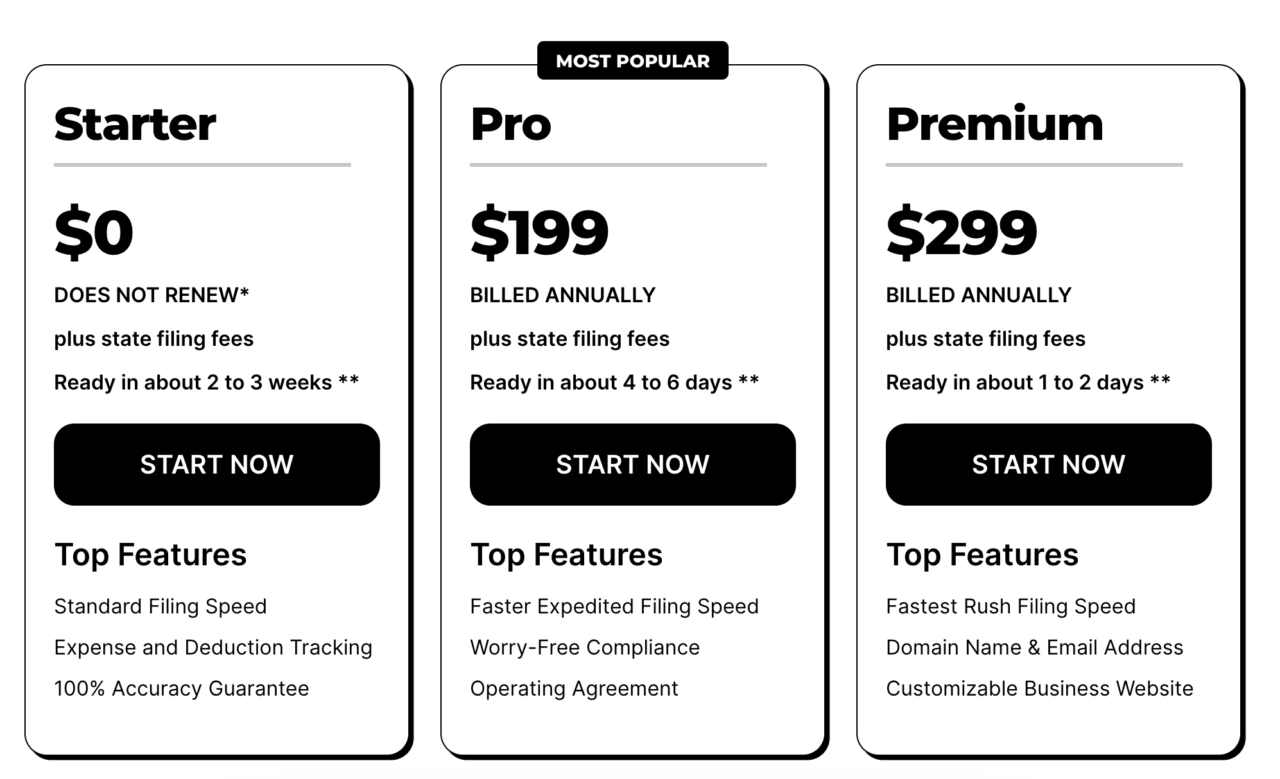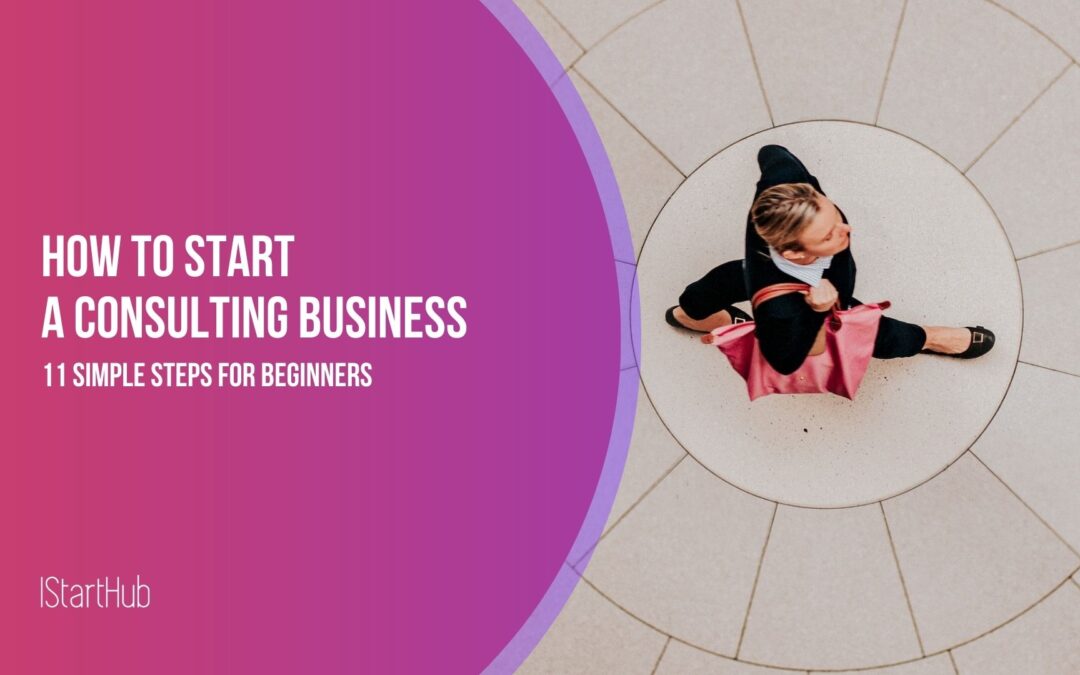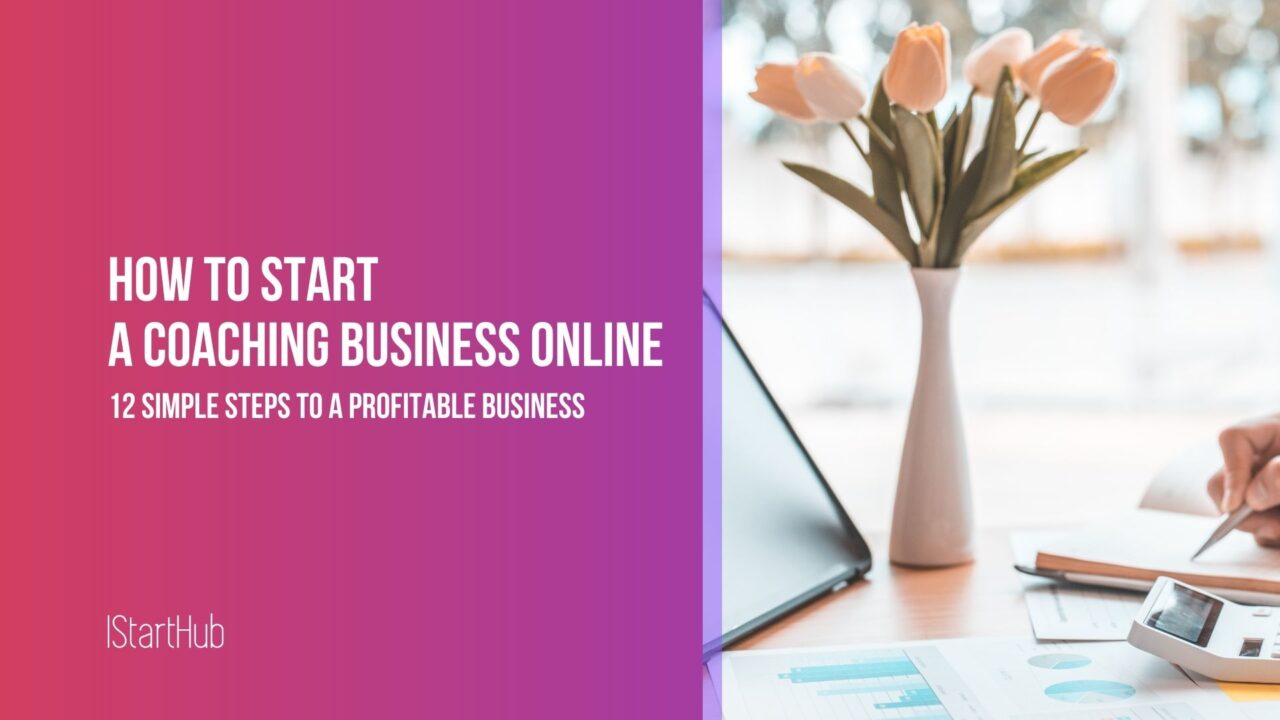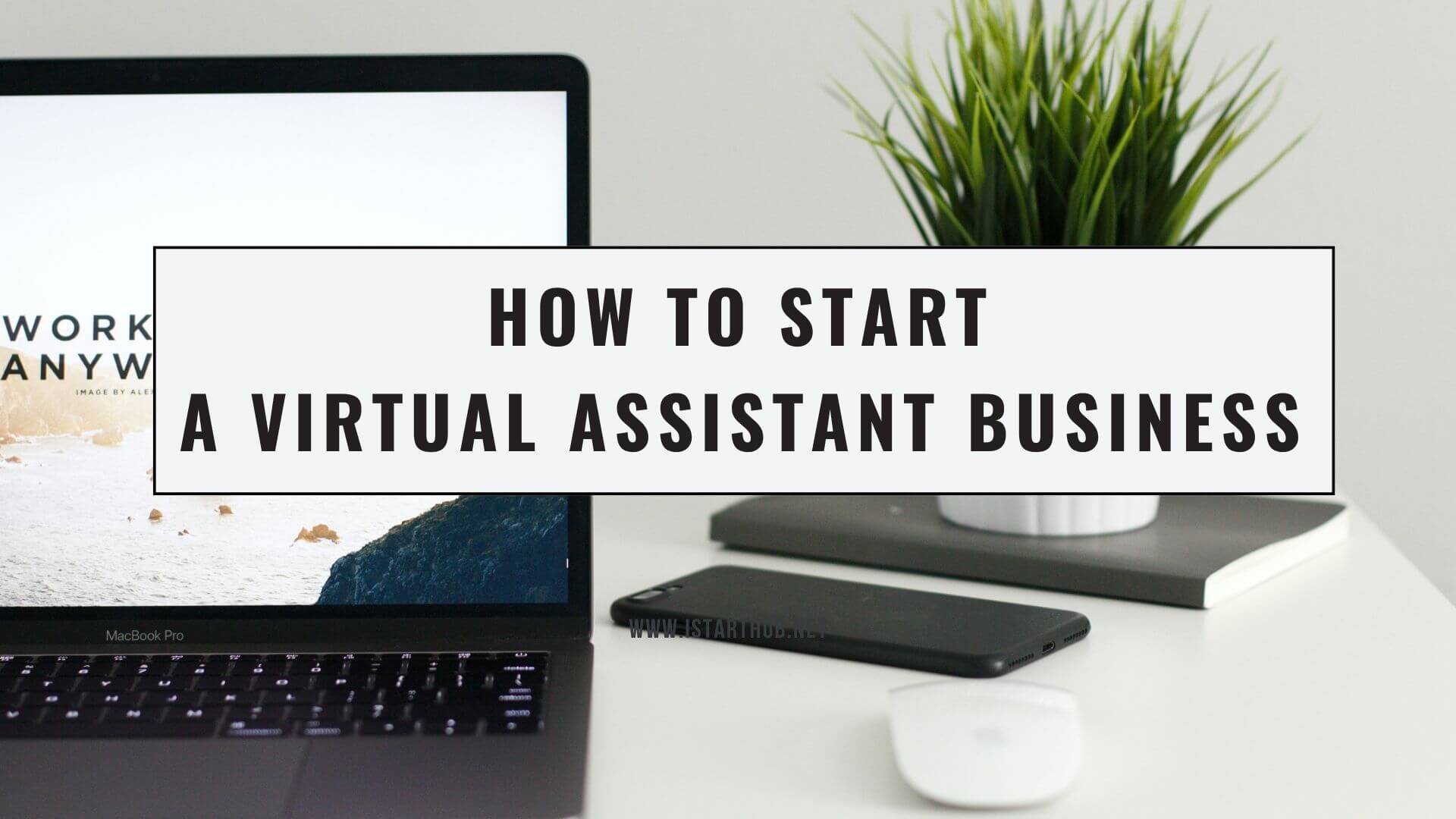Have you ever considered starting a consulting business? If you’re passionate about helping other people succeed by providing niche expertise honed by years of skill development, experience, and education, a career in consulting could be a great way to make extra money.
And if you’re working full-time, you can start a consulting business on the side to boost your income.
So, how to start a consulting business on the side?
This blog post covers everything you need to know on how to start a consulting business on the side, from choosing your niche to marketing and growing your business.
What Is a Consulting Business?
A consulting business is a type of business that provides industry-specific professional advice, guidance, and actionable solutions to business owners or managers who want to improve their efficiency.
You see, every organization, no matter the industry affiliation, is bound to run into problems at various stages of growth. While some of these issues can be resolved internally, others may extend beyond the organization’s resources or collective skills. In such cases, the next best option is to turn to a consulting firm.
As a consultant, you should have a deep understanding of a particular field or industry and use your knowledge to identify and overcome the obstacles a company is facing.
Not to be confused with contractors (such as freelancers) who are self-employed individuals that companies contract to offer services, consultants’ main focus is to provide assessments and expert advice.
The consulting industry is projected to continue to grow as firms face new challenges of managing remote teams. A career as a consultant can be highly rewarding, with data showing that a consultant in the US makes around $93,000 per year. Depending on the location, the industry you serve, and the mix of consulting skills you bring to the table, you can charge upwards of $200 per hour.
There are several types of consulting:
Business consulting
It means working with businesses on all levels, from financial advice to training to staff management.
Management consulting
It focuses on working with business leaders to help their companies run smoothly. Good examples include Deloitte and McKinsey.
Strategy consulting
Its primary task is to review business strategies and provide expert advice on how to improve or develop new ones.
IT consulting
Its main role is to implement and manage new technologies, such as software development and management, systems integration, and enterprise architecture.
Human resources consulting
It specializes in HR processes, such as training and development, employee satisfaction, conflict resolution, etc.
Starting a Consulting Business Checklist
A consultancy career has many benefits, including the flexibility of choosing when and where you work, which clients to take on, and your rates. It’s also easy to scale up and down to accommodate your financials and lifestyle.
Having said that, becoming a consultant isn’t always an easy route to take. That’s why it’s essential to consider important factors about the consulting business before you begin.
Here’s a step-by-step guide on how to start a consulting business.
1. Choose your consulting niche
The most effective way to increase the probability of your success as a consultant is to assess your skills and expertise to choose your niche. What are you good at? What skills do you have that other people might need? What are you an expert in?
Keep in mind that you must have deep knowledge in a specific field so that you can offer value to your clients. Once you assess your strengths, specialty, and skill set, it becomes easier to carve out a niche within your consultancy market.
2. Define your business model
After choosing a niche, the next step is to decide on a business model, which outlines how you plan to make money. There are several options to try:
Hourly rate
You can charge clients an hourly rate for your services. While clients might feel it offers more flexibility, it might not provide you dependable income, particularly if hours are not contracted.
Project fee
Another option is to charge clients a fixed fee for a specific project. The problem is, if projects take longer, you might be left worse off.
Retainer model
It means a long-term agreement. It involves charging clients a monthly fee for ongoing access to your consulting services. It’s a popular method among more established consultants who want to spend less time looking for new projects. On the downside, you might be forced to lower your hourly rate slightly.
So, when selling your services, how you bill clients can shape your financial security. Therefore, you may want to conduct a market analysis to find out what’s common in your field.
After deciding on a business model, you need to figure out how to price your services. Your decision will be influenced by factors like your experience, the competition, and the value of your services.
In addition, you’ll want to decide how you’re going to deliver your services. Will it be a one-on-one consulting, remote, or a combination of both?
3. Create a consulting business name
Creating your business name plays a critical role in the success of your consulting business. You want to choose a business name that’s memorable and easy to spell. More importantly, it should be relevant to your niche.
For example, you can come up with catchy business names like:
- The Legal Expert
- The IT Consultant
- Consulting Success
- Ultrasonic Advisors
- People Spark Consulting
Here are some tips to guide you when creating your consulting business name:
- The shorter and simpler your business name, the easier it will be for people to remember.
- Incorporate keywords related to your niche in the business name. That way, you can appear in the top searches when people search for services like yours.
- Find a unique word or phrase that will stick in people’s minds.
- Don’t use names that are already in use by other businesses.
- Use a name that reflects your personality – something that represents your values.
- Choose a name that’s available as a domain name. You’ll need to create a website for your business, and you want to be able to register a domain name that matches your business name.
4. Open an LLC for consulting work
Opening an LLC, or Limited Liability Company, is necessary for protecting your personal assets. It means your personal assets are not at risk if your business is sued.
Opening an LLC will vary from one country, province, or state to another. Basically, it requires filing paperwork with the government. After filing the paperwork, you may need to obtain the necessary documentation from the relevant authorities, such as the IRS.
I recommend opening LLC with Zen Business – they offer a FAST and FREE start with great support. With them, you can register a consulting business with no money!

An LLC makes your business more legitimate in your client’s eyes, and this makes it more reputable. You may want to consult an accountant or a lawyer for guidance on how to proceed to ensure you follow all due process.
5. Get business consulting insurance
Regardless of how professional you are, something will always go wrong as you grow your consultancy business. Business consultancy insurance is a rather inexpensive way to protect your business and provide you peace of mind. That’s why insuring your business is of paramount importance.
The right policy will protect you from financial losses that may arise from errors and omissions, lawsuits, and other risks associated with your business.
When choosing the right business insurance policy:
- Get quotes from multiple insurers so you can compare prices and the coverage options they offer.
- Pick a policy cover that’s most relevant to your consulting niche. For example, if you offer financial advice, the policy should cover errors and omissions.
- Carefully read the policy and ask questions to clarify any issues you might have.
6. Create a website for your consulting business
A website is an essential part of any business. It offers an effective way of introducing yourself to potential clients and reaching a wider audience. It also lets you showcase your expertise and share information about the services you offer.
If you don’t have a website for your consulting business, use this link to get a special offer from Hostgator and pay only $2.75 a month for web hosting!
- Fast and easy to start
- Great support
- Free domain included
Try Hostgator now >>
When creating a website for a consulting business, make sure it’s:
- Professional and easy to use
- Informative
- Mobile-friendly
You can hire a web designer to help you create a website for your consulting business or use a website builder. However, creating a website is just the tip of the iceberg. You’ll need to put work into it, such as a combination of SEO, email marketing, and social media marketing, to promote it and attract clients.
Consider using Semrush for all your marketing efforts! It is a great tool for the competitors’ analysis and website traffic!
Try Semrush now >>
Again, you can do it yourself or hire an expert to optimize your website.
7. Find first clients
Finding your first clients will be the most challenging part of starting a consulting business. Performing market analysis can help pinpoint your target audience. For example, if you’re a Human Resource Consultant, you might target small to mid-size companies with plans to scale or restructure.
There are a few ways to go about it:
- Networking. Spread the word around that you’re starting a consulting business and are on the hunt for clients. Start with family, friends, and former colleagues. Social networks like LinkedIn and Facebook also offer great opportunities to connect with potential clients.
- Attending industry events is another effective way to forge new connections and pitch new clients.
- Free consultations. Offering free consultations can be a sneaky way to get your foot in the front door and demonstrate your value to potential clients.
- Reach out to businesses in your target market. Proactively reaching out to businesses that you target and introducing yourself and your services is an excellent way to land clients.
8. Automate the processes with consulting software
We live in a modern era where AI is becoming mainstream in automating business processes and tasks. Some of the tasks you can automate using consulting software include:
- Project management to track project progress, communicate and collaborate with team members, and manage budgets.
- Time tracking to help track time spent on each project and how team members are spending time. This data can be useful when you want to improve efficiency and bill clients.
- Invoicing to help create and send invoices to clients automatically on specified schedules.
- Client relationship management (CRM) to track client interactions, manage leads, and close leads.
- Expense tracking will help you automatically track your expenses and ensure you stay on budget.
Using consulting software to automate processes has several benefits, including:
- Increasing efficiency
- Improving accuracy
- Enhancing collaboration
- Boosting profitability
9. Define your marketing strategy
A marketing strategy is a plan that outlines how to reach your target audience, convert them into paying customers, and promote your business. It entails your business goals, messaging tactics, analysis of the competition, marketing mix, marketing channels and metrics, and so on.
When defining your marketing strategy, it’s important to:
- Do thorough research about your target market. Doing so will ensure you create marketing messages that resonate with them.
- Set S.M.A.R.T. goals to guide you through the process.
- Be creative and develop new ideas that will give you an edge over your competitors.
- Measure results. What can be measured can be tracked. Measuring results makes it easier to determine what’s working and what’s not and make the necessary adjustments to your strategy.
10. Build loyalty
The key to the success of your consulting business is repeat customers. But how do you build customer loyalty?
There are several ways:
- Offering exceptional customer service. The topmost element in building loyalty is customer service. It’s what will make or break your business. If customers are happy with your services, they’ll come back for more and refer your business to others.
- Personalizing the experience. You want your clients to feel valued, and nothing does the job best than personalizing their experience. It can be as simple as sending them personalized emails or messages or remembering their preferences for flowers, tea, or coffee.
- Implementing incentives in your programs. Offering clients rewards and incentives shows that you appreciate them and can contribute to customer loyalty. Consider rewards like discounts on special holidays, early access to new products or services, or free products or services.
11. Scale up your consulting business
Ultimately, your long-term goal is to leave your 9-5 job and go full-time into consulting. Once you do, you’ll be able to scale your consulting business, which will mean more growth in terms of revenue and client base.
But how do you grow and scale a consulting business?
Here are a few tips:
- Invest in marketing and sales. It’s a sure way to attract new clients and grow your business.
- Hire the right people. It’s often said that employees are the pillars that hold your company. Therefore, it’s important to hire not only qualified and experienced professionals but also those who share your goals and vision.
- Outsource. As much as you may want to do everything yourself, outsourcing will relieve you of that pressure so you can focus on growing the business. What’s more, outsourcing gives you access to specialized talent that can perform designated tasks more effectively.
- Develop new products and services. Not only will this attract new clients and generate new revenue streams, it’s also a great way to differentiate your business from competitors.
- Maintain a strong online presence. Keeping your website and social media up-to-date with new and relevant information provides more value to your audience and can build loyalty.
- Offer value-added services. Besides offering consulting services, you can provide value-added services to your clients. This could range from business coaching, mentoring, or training in specific fields of interest.
FAQs
Can I start a consulting business with no experience?
Absolutely! However, starting a consulting business with no experience and building credibility and trustworthiness will be much more difficult. The good news is that there are several ways to gain experience in your area of expertise, including offering free consultations, volunteering, getting involved in industry organizations, etc.
How much does it cost to start a consulting business?
The costs associated with starting a consulting business can range from a few hundred to thousands of dollars, depending on the type of consulting you’ll be specializing in and your location.
Generally, you’ll incur costs like:
- Business registration fees
- Website design, development, and management fees
- Office space, if you’ll be operating on-site
- Marketing and advertising to expand your market reach
- Professional fees to hire lawyers, accountants, and insurance agents
- Staff recruitment and onboarding
Key Takeaways
Operating a consulting business on the side offers you a way to share your skills and experience with others and generate extra income while at it. However, to make it successful, you must understand what’s involved in starting and running a consulting business.
Some of the key steps to guide you include:
- Choosing a nice
- Defining your business model
- Creating a website
- Automating repetitive tasks like invoicing
- Developing a solid marketing strategy
- Building loyalty.
Ready to get started on building a winning consulting business?
Tetiana is a business coach and owner of IStartHub, a business media for ambitious female entrepreneurs and small business owners.







